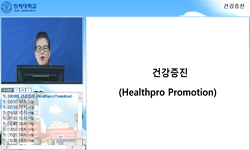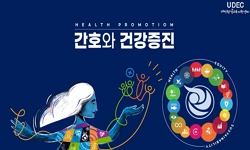이 연구는 2023년 국민생활체육조사 자료를 활용하여 생활체육 참여자의 주관적 건강상태에 영향을 미치는 요인을 분석하고자 하였다. Microsoft Excel과 SPSS 통계프로그램을 사용하여 총 9,000명...
http://chineseinput.net/에서 pinyin(병음)방식으로 중국어를 변환할 수 있습니다.
변환된 중국어를 복사하여 사용하시면 됩니다.
- 中文 을 입력하시려면 zhongwen을 입력하시고 space를누르시면됩니다.
- 北京 을 입력하시려면 beijing을 입력하시고 space를 누르시면 됩니다.

생활체육 참여자의 주관적 건강상태 영향요인: 2023년 국민생활체육조사 자료 분석 = Factors Influencing the Self-rated health (SRH) of Participants in Sports for All: Analysis of Data from the 2023 National Sport Participation Survey
한글로보기https://www.riss.kr/link?id=A109407028
- 저자
- 발행기관
- 학술지명
- 권호사항
-
발행연도
2024
-
작성언어
Korean
- 주제어
-
등재정보
KCI등재
-
자료형태
학술저널
-
수록면
43-51(9쪽)
- 제공처
-
0
상세조회 -
0
다운로드
부가정보
국문 초록 (Abstract)
이 연구는 2023년 국민생활체육조사 자료를 활용하여 생활체육 참여자의 주관적 건강상태에 영향을 미치는 요인을 분석하고자 하였다. Microsoft Excel과 SPSS 통계프로그램을 사용하여 총 9,000명의 자료를 분석하였으며, 인구통계학적 변수(성별, 연령, 학력, 소득등)와 건강 관련 행동 변수(체육활동, 수면, 식사 등), 체육활동 관련 변수(운동용품 구입, 동호회 가입 등), 체육시설 접근성 등을 독립변수로 설정하였고, 주관적 건강상태를 종속 변수로 설정하였다. 다항 로지스틱 회귀분석을 실시한 결과, 규칙적인 식사와 체육활동, 높은 학력, 충분한 수면, 사회적 활동 등이 주관적 건강상태에 긍정적인 영향을 미치는 요인으로 확인되었다. 특히, 규칙적인 체육활동과 식습관은 주관적 건강상태 인식에 가장 큰 영향을 미쳤으며, 학력 수준과 사회적 활동도 개인의 건강상태 인식을 향상시키는 데중요한 역할을 하였다. 반면, 운동 중 상해를 경험한 경우 건강상태를 부정적으로 인식하게 만드는 요인으로 나타났다. 따라서 본 연구는 주관적 건강상태에 대한 다양한 영향 요인을 입증함으로써, 생활체육 활성화를 포함한 국민 건강증진 및 맞춤형 건강관리 프로그램 개발에 필요한 실질적인 기초 자료 제공에 기여할 수 있을 것이다.
다국어 초록 (Multilingual Abstract)
This study aimed to analyze the factors influencing the self-rated health (SRH) of participants in sports for all using data from the 2023 National Sport Participation Survey in Korea. A total of 9,000 participants were analyzed, with independent vari...
This study aimed to analyze the factors influencing the self-rated health (SRH) of participants in sports for all using data from the 2023 National Sport Participation Survey in Korea. A total of 9,000 participants were analyzed, with independent variables including demographic factors (such as gender, age, education, and income), health-related behaviors (such as physical activity, sleep, and diet), and variables related to sports participation (such as purchasing sports equipment, joining sports clubs, and accessibility to sports facilities). The dependent variable was self-rated health status. A multinomial logistic regression analysis revealed that regular meals, physical activity, higher education, sufficient sleep, and social activities were significant positive predictors of self-rated health. In particular, regular physical activity and dietary habits had the greatest impact on the perception of self-rated health, with education level and social activities also playing a significant role in improving individual health perception. On the other hand, experiencing injuries during physical activity was identified as a negative predictor of self-rated health. Therefore, this study contributes to providing a foundational basis for the development of tailored health management programs and public health promotion strategies, including the promotion of sports for all, by demonstrating various factors affecting self-rated health.
동일학술지(권/호) 다른 논문
-
무도전공 학생선수와 체육무도전공 일반학생의 상호 인식 분석
- 한국코칭능력개발원
- 손나래
- 2024
- KCI등재
-
- 한국코칭능력개발원
- 신윤아
- 2024
- KCI등재
-
전신 크라이오테라피 처치 강도에 따른 대학축구선수의 뇌산소포화도, 심박수 및 체온의 변화
- 한국코칭능력개발원
- 김예영
- 2024
- KCI등재
-
중국 대학 우슈 선수의 성취 목표 지향이 심리적 행복감에 미치는 영향 : 운동 열정과 운동 자기 효능감의 매개효과
- 한국코칭능력개발원
- 장천천
- 2024
- KCI등재




 KCI
KCI DBpia
DBpia






